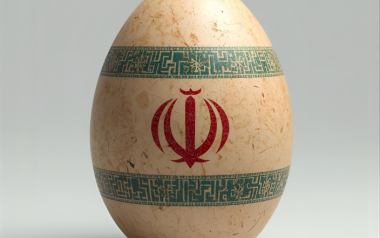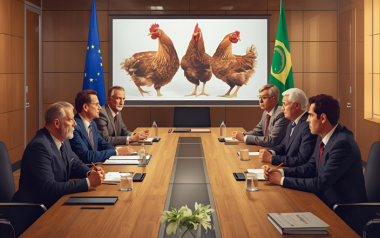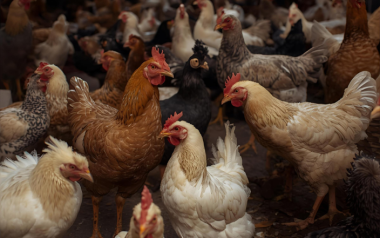Sources: Available upon request
29 Aug 2025
Syria bans poultry imports to boost local industry
Syria has imposed an indefinite ban on the import of frozen chicken and other poultry products, effective August 15, 2025.
In a bold move to protect its domestic poultry sector, Syria has imposed an indefinite ban on the import of frozen chicken and other poultry products, effective August 15, 2025. The decision, announced by the Ministry of Agriculture and the Ministry of Economy and Foreign Trade, is part of a broader strategy to rebuild the country’s agricultural base after more than a decade of civil war and economic sanctions.
Saeed Ibrahim, Director of Agricultural Economics and Planning, stated that the ban aims to reduce reliance on foreign imports, improve food security, and support local farmers who have struggled to compete with cheaper, imported poultry. The ban follows a suspension of exports for 20 agricultural products, including broiler meat and eggs, and is subject to monthly review based on market conditions.
- Before the war, Syria’s poultry industry was thriving, producing 300,000 tonnes of meat and 5 billion eggs annually, with 1.5 billion eggs exported to Gulf countries.
- However, the conflict that began in 2011 and ended with the fall of Bashar al-Assad’s regime in December 2024 devastated the sector.
- By 2023, Syria’s poultry exports had plummeted to just \$1.1 million, all to Lebanon, while imports reached \$31.6 million, sourced entirely from Turkey.
The import ban has sparked diplomatic reactions, particularly from Turkey, Syria’s largest trading partner. Turkish officials clarified that the restriction is not exclusive to Turkey but part of a broader embargo affecting 20 agricultural products. Despite the tensions, both countries continue to engage in economic dialogue, with recent agreements signed to boost bilateral trade.
Domestically, the ban is expected to stimulate local production. Farmers in regions like Homs and Damascus have already reported increased demand and are cautiously optimistic about the future. However, challenges remain, including high feed costs, fuel shortages, and limited veterinary support.
- The policy also aligns with Syria’s broader economic recovery.
- Following the lifting of U.S. and EU sanctions in mid-2025, the country has begun reintegrating into global markets.
- The poultry ban is seen as a step toward rebuilding national industries and reducing vulnerability to external shocks.
While short-term price increases are likely, officials argue that the long-term benefits—job creation, food security, and economic resilience—will outweigh the initial disruptions. The coming months will be critical in determining whether Syria’s poultry sector can regain its former strength.







































